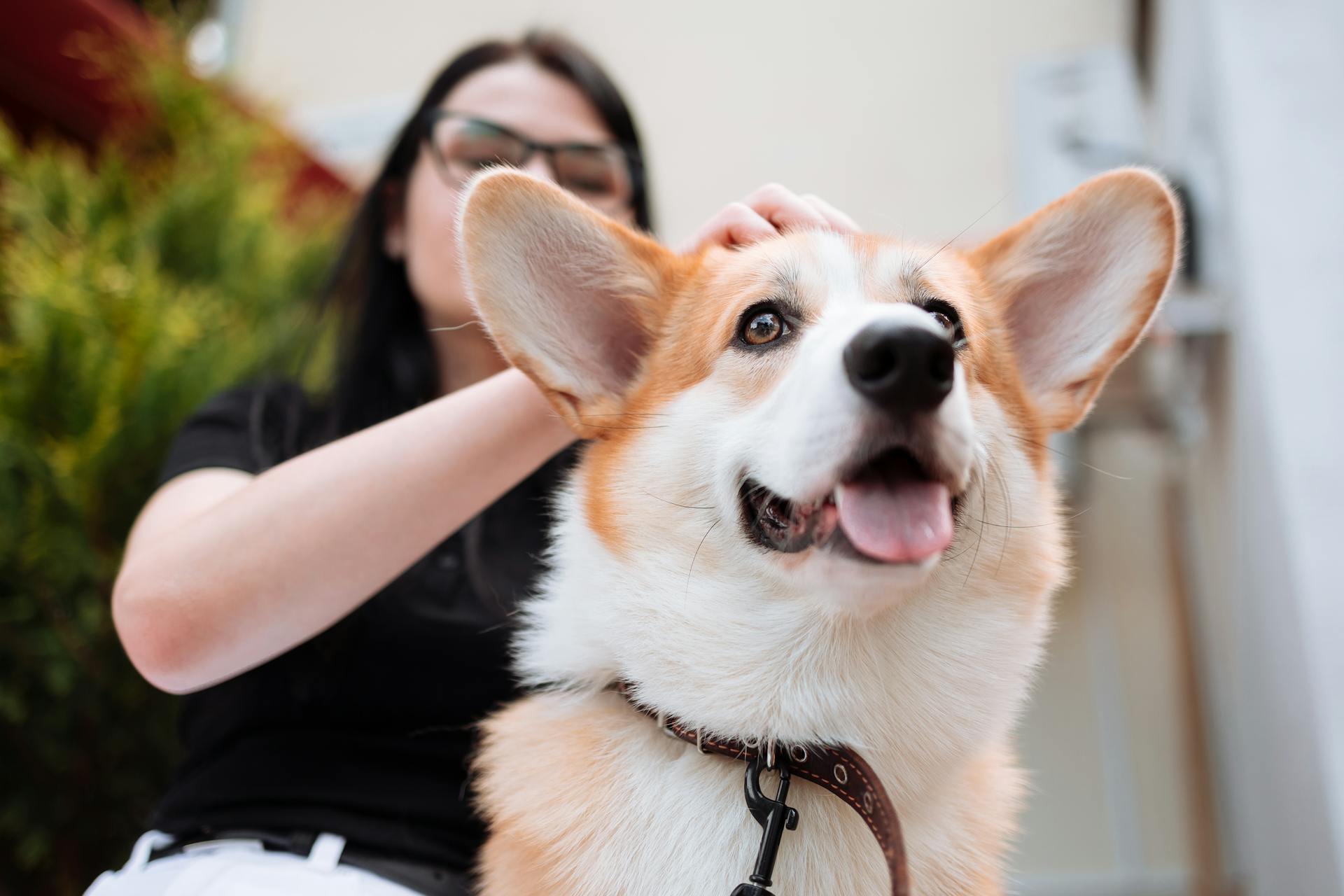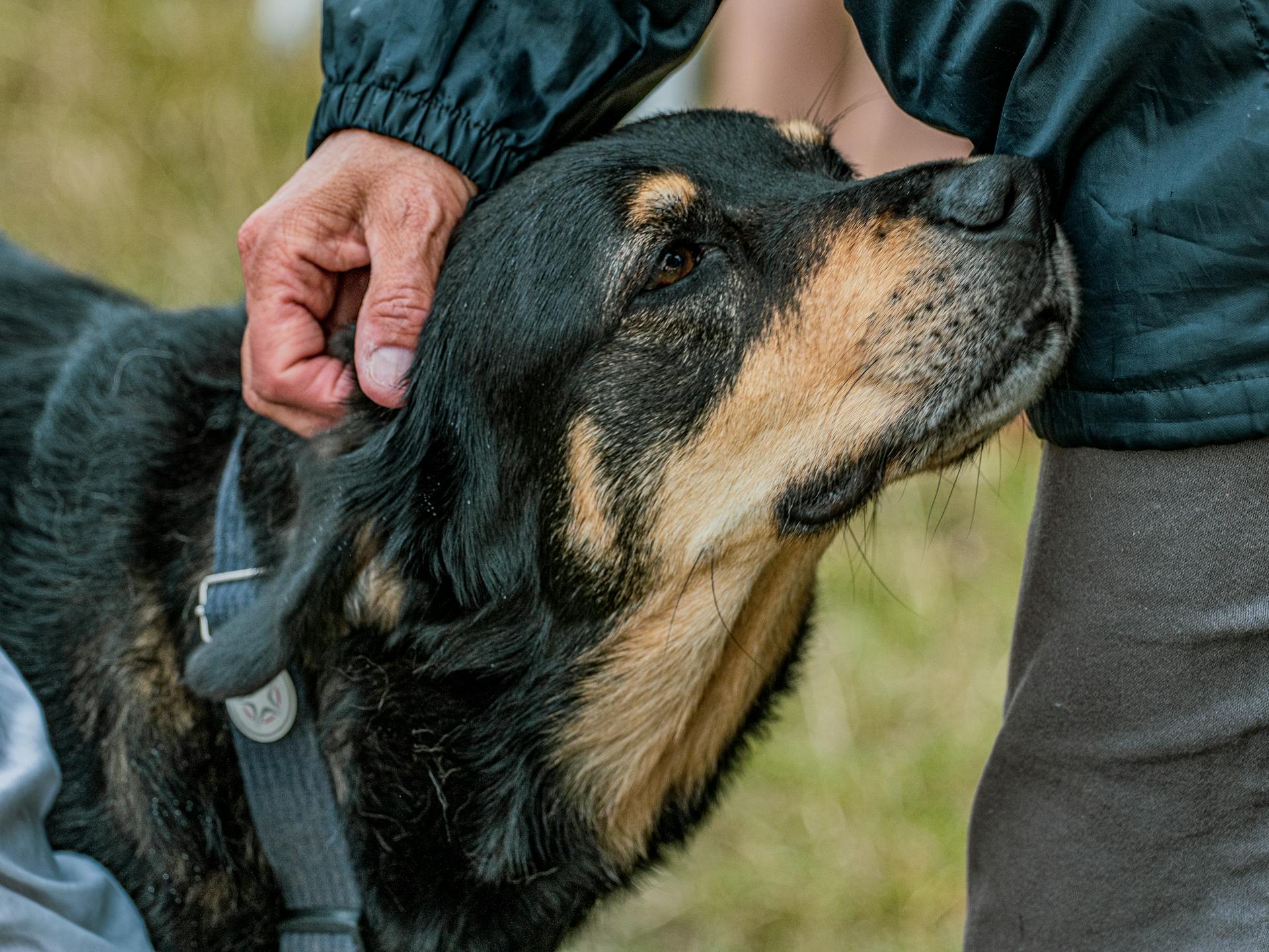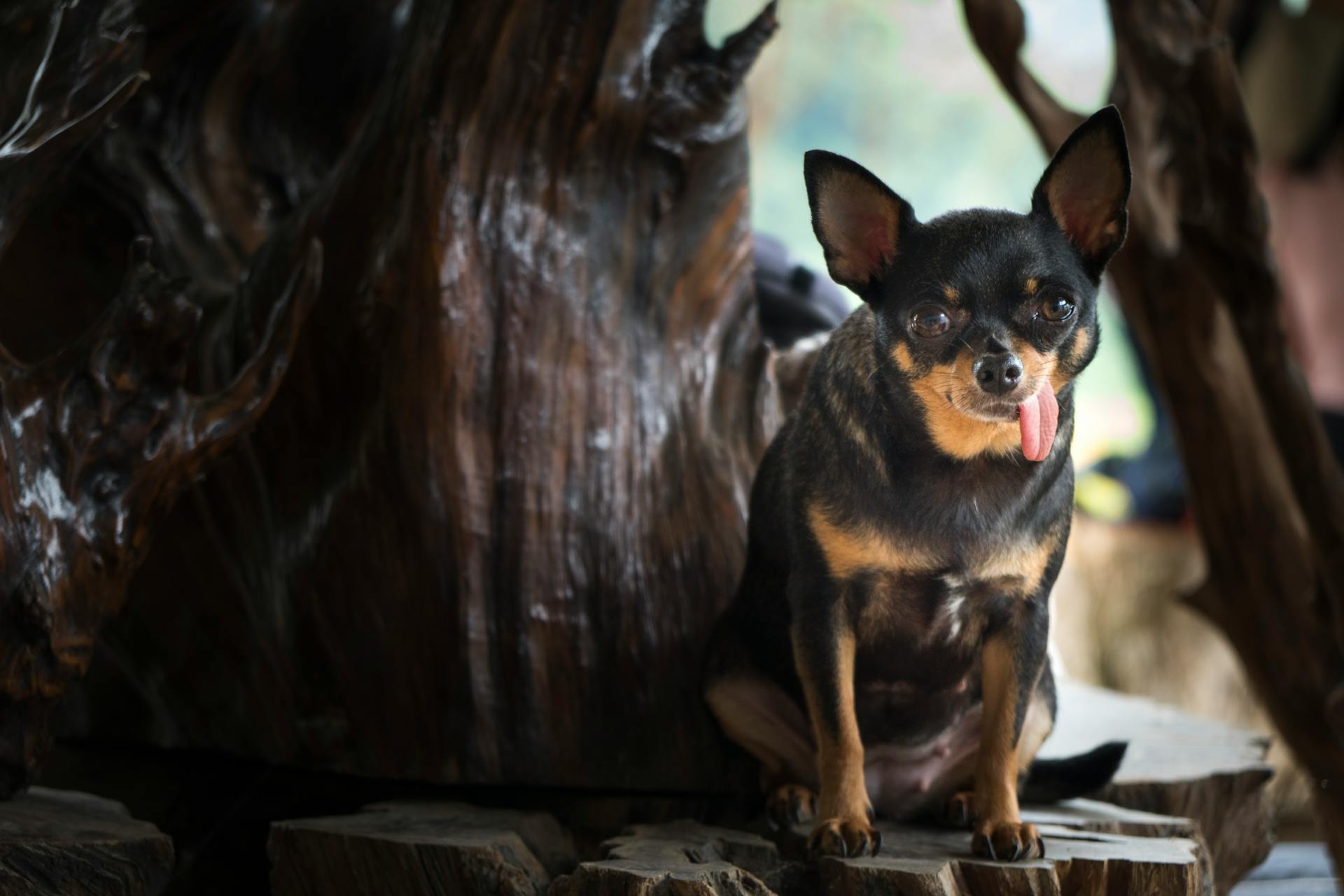
There are many ways to tell if a horse is cold. Some horses will shiver, some will have a lower body temperature, and some will not have the same energy levels as they normally do. Horses that are cold may also stand with their legs closer together than normal and may have their tails down. If you are unsure if your horse is cold, you can always ask your veterinarian.
How can you tell if a horse is cold?
A horse can feel cold to the touch, and may be shivering. If the horse is outdoors, its coat may be wet and hanging down, and the horse may be standing in a hunched position to try to keep warm. The horse may also have a dull, dry coat.
For more insights, see: Horses Coat
What are the signs that a horse is cold?
A horse is cold if its number of breaths per minute is below 12, its mucous membranes are pale, and/or its lower legs feel cold to the touch. If a horse's coat is wet, it is also likely to be cold. There are many other signs that a horse is cold, but these are the most common.
How should you dress a horse in cold weather?
In most cases, horses are very capable of dealing with cold weather and don’t require any special clothing. Their coat will protect them from the elements and their natural body fat helps to insulate them. However, there are some exceptions where horses may benefit from a little extra warmth. If a horse is wet, has a thin coat, is very young or old, or has a medical condition that makes them more sensitive to cold, then they may need some assistance to stay comfortable in colder weather.
One way to help a horse stay warm in cold weather is to provide them with a blanket. Horse blankets come in a variety of weights, so you can choose one that is appropriate for the current weather conditions. It’s important to make sure that the blanket fits well and is not too tight or too loose. A blanket that is too tight can rub and irritate the horse’s skin, while a blanket that is too loose can allow cold air to get underneath and cool the horse’s body.
Another way to keep a horse warm in cold weather is to provide them with a heated water bucket. Horses will often drink more water in cold weather, so it’s important to make sure that they always have access to fresh, clean water. A heated water bucket will help to prevent the water from freezing, making it more accessible and appealing for the horse to drink.
If you decide to use either of these methods to keep your horse warm in cold weather, be sure to monitor them closely. Horses can overheat easily, so it’s important to make sure that they are not too warm. If you are unsure about how to dress your horse for cold weather, or if you have any concerns about their health, it’s always best to consult with a veterinarian or qualified horse professional.
Expand your knowledge: Cold Weather
What is the best way to keep a horse warm in cold weather?
There are a few things to consider when it comes to keeping your horse warm in cold weather. The type of coat your horse has, the type ofblanket or sheets you use, and how you stable your horse can all make a difference.
The first thing to think about is your horse's coat. If your horse has a thick winter coat, he or she will be better able to withstand cold weather than a horse with a thin coat. If your horse does not have a thick coat, you may want to consider using a blanket or sheet to help keep him or her warm. There are a variety of blankets and sheets on the market that are specifically designed to keep horses warm in cold weather.
Another thing to consider is how you stable your horse. If your horse is kept in a cold, drafts stall, he or she will likely be much colder than a horse that is stabled in a warm, well-ventilated stall. If possible, try to stable your horse in a warm, dry stall with plenty of fresh air.
Finally, consider what type of food you are feeding your horse. Horses metabolize food differently in cold weather, and they may need more calories to maintain their body heat. Talk to your veterinarian or a equine nutritionist to see if you need to make any changes to your horse's diet during cold weather months.
By taking these factors into consideration, you can help ensure that your horse stays warm and comfortable all winter long.
Take a look at this: How to Cut a Horse's Mane?
How can you tell if a horse is too cold?
There are a few ways to tell if a horse is too cold. One way is to check the horse's temperature. A healthy horse's temperature should be between 37.5 and 38.5 degrees Celsius. If the horse's temperature is below 37.5 degrees Celsius, then the horse is too cold. Another way to tell if a horse is too cold is to check the horse's pulse. A healthy horse's pulse should be between 40 and 60 beats per minute. If the horse's pulse is below 40 beats per minute, then the horse is too cold. Another way to tell if a horse is too cold is to check the horse's respiration rate. A healthy horse's respiration rate should be between 8 and 12 breaths per minute. If the horse's respiration rate is below 8 breaths per minute, then the horse is too cold. The final way to tell if a horse is too cold is to check the horse's gum color. A healthy horse's gums should be pink. If the horse's gums are white, blue, or purple, then the horse is too cold. If a horse is too cold, it is important to warm the horse up gradually. The best way to do this is to wrap the horse in a warm blanket and walk the horse around until the horse is warm.
You might like: How to Get a Horse's Attention?
What are the consequences of a horse being too cold?
There are a variety of consequences that may arise from a horse being too cold. One of the most evident consequences is that the horse may suffer from hypothermia. When the core body temperature drops, various systems in the body begin to shut down and don't function as efficiently as they should. The horse may also become more susceptible to illness and infection. In severe cases, the horse may even go into shock or coma.
Another potential consequence of a horse being too cold is that it may begin to experience muscle cramping. This is because the muscles need warmth to properly relax and contract. When they are cold, the muscles may tighten up and cramp. This can be quite painful for the horse and may make it difficult for them to move around.
If a horse is too cold for extended periods of time, it may also start to develop a condition known as laminitis. This is a condition that affects the horse's hooves and can be very painful. Laminitis can also lead to other problems, such as founder, which is when the horse's hooves sink into the ground.
Lastly, cold weather can also dry out a horse's skin and coat. This can make the horse more uncomfortable and can also lead to the horse developing other skin conditions.
Recommended read: What Did the Horse Say When It Fell?
How can you prevent a horse from getting too cold?
Most horses are quite tolerant of cold weather and can stay outside in cold weather without any problem. However, there are some things you can do to help your horse stay warm and comfortable in cold weather.
First, make sure your horse has access to shelter from the wind and rain. A three-sided run-in shed is ideal, but if you don't have one of those, a simple tree or large rock can provide some windbreak.
Second, provide your horse with plenty of hay. Hay not only provides essential nutrients, but it also helps keep horses warm by increasing their body heat as they digest it.
Third, make sure your horse has access to fresh, clean water. Dehydration can make horses more susceptible to colds and other illnesses.
Fourth, consider using a horse blanket. Blanketing can help keep your horse's body temperature steady, which can be helpful in cold weather.
finally, pay attention to your horse's behavior. If your horse seems to be cold, give him a little extra attention. Make sure he has plenty of hay and water, and consider using a horse blanket.
Recommended read: How to Paint a Horse's Mane?
What are some common cold weather hazards for horses?
Most horse owners are aware of the dangers posed by extreme cold weather, but even moderate cold can pose significant health risks to horses. Some common cold weather hazards for horses include:
* Pneumonia: Pneumonia is a serious lung infection that can be caused by exposure to cold, damp conditions. Symptoms include fever, coughing, and difficulty breathing. Pneumonia can be fatal if not treated promptly.
* Chilling: Chilling is a condition that occurs when a horse's body temperature drops below normal. This can be caused by exposure to cold weather, wet conditions, or drafts. Chilling can lead to serious health problems, including pneumonia, and can be fatal if not treated promptly.
* Colds and Flu: Horses are susceptible to the same cold and flu viruses that affect humans. Symptoms include fever, runny nose, and coughing. Colds and flu can be serious in horses, especially if they are not treated promptly.
* Arthritis: Arthritis is a common condition in horses, and cold weather can aggravate the symptoms. Arthritis causes pain and stiffness in the joints, and can make it difficult for horses to move around.
* Hoof Problems: Hoof problems are common in horses, and cold weather can make them worse. Hoof problems can cause pain and difficulty walking, and can lead to serious health problems if not treated promptly.
* Gastric Ulcers: Gastric ulcers are a common condition in horses, and can be aggravated by cold weather. Gastric ulcers cause pain and discomfort in the stomach, and can lead to serious health problems if not treated promptly.
* Dehydration: Dehydration is a serious risk in horses, and can be caused by exposure to cold weather. Dehydration can cause weakness, exhaustion, and can be fatal if not treated promptly.
These are just some of the common cold weather hazards for horses. It is important to be aware of the risks and take steps to protect your horse from the cold weather.
Related reading: Pigeon Fever
What should you do if you think your horse is cold?
If you think your horse is cold, there are a few things you can do to make sure they're comfortable. One is to check their temperature with a regular thermometer or a digital one made specifically for horses. You can also feel their pulse and check their gum color; both of these should be normal if they're healthy. If you're still unsure, you can consult your veterinarian.
Warmth is essential for horses, especially during the winter months. If you think your horse may be cold, there are a few things you can do to help them. One is to check their temperature with a regular thermometer or a digital one made specifically for horses. You can also feel their pulse and check their gum color; both of these should be normal if they're healthy. If you're still unsure, you can consult your veterinarian. Another way to tell if your horse is cold is by feeling their legs. If they're cold to the touch, it's likely that your horse is cold.
There are a few things you can do to warm up your horse if they are cold. One is to provide them with a blanket, either a horse blanket or a human blanket. If you have a heater, you can set it up in their stall so they can benefit from the heat. You can also add extra bedding to their stall to help insulate them from the cold. Another option is to provide them with a heat lamp, which will give them direct heat.
If your horse is cold, it's important to take action to help them. By checking their temperature, pulse, and gum color, you can get an idea of their overall health. If you're still unsure, consult your veterinarian. You can also help warm up your horse by providing them with a blanket, setting up a heater in their stall, or adding extra bedding. By taking these steps, you can help your horse stay warm and comfortable all winter long.
Worth a look: Horse Blanket
Frequently Asked Questions
How cold is too cold for a horse in the winter?
Horses in good body weight and well-covered will be comfortable at 15 degrees F (-9 degrees C), but horses that are overweight or poorly covered will likely suffer from cold injuries.
What is the normal body temperature of a horse?
Normal body temperature for an adult horse stands anywhere from 99 to 101.5 degrees Fahrenheit (37.2 to 38.6 degrees Celcius).
What happens when a horse's temperature drops below normal?
When a horse's temperature falls below normal, the body begins to lose heat. The brain and other vital organs can quickly lose enough heat to cause serious problems. This is why horses must be kept warm at all times - even if they are just taken out for a long ride in cold weather.
What are the symptoms of a horse Cold?
The symptoms of a horse cold vary depending on the individual horse, but typically include fever, runny nose, and cough.
How do horses stay warm in the winter?
In the winter, horses will often layer up to keep warm. They’ll wear a coat of insulation on top of their body, and MAYBE some sort of feather accessory on their head or tail. In addition, they may eat extra hay to help them fight off the cold.
Sources
- https://equestlife.com/how-do-i-know-if-my-horse-is-cold/
- https://equinewellnessmagazine.com/6-ways-to-keep-your-horse-warm-this-winter/
- https://www.horsejournals.com/horse-care/seasonal-care/autumn/how-blanket-horse-cold-weather
- https://pethelpful.com/horses/Horse-Care-in-Winter
- https://thehorse.com/123921/keeping-horses-warm/
- https://www.wikihow.pet/Exercise-Horses-in-Cold-Weather
- https://sage-answers.com/how-do-i-know-if-my-horse-is-too-cold/
- https://forums.horseandhound.co.uk/threads/how-to-tell-if-horse-is-cold.330241/
- https://sciencetopics.quest/popular-ask/how-to-tell-if-a-horse-is-cold/
- https://equisearch.com/articles/winter-cold-horse-cold-12895/
- https://yourhorsefarm.com/horses-and-cold-weather/
- https://www.theclarityhorseblog.com/post/3-helpful-hints-to-knowing-if-your-horse-is-cold
- https://thehorse.com/138343/how-can-i-tell-if-my-horse-is-cold/
- https://equestrianbootsandbridles.com/do-horses-get-cold/
Featured Images: pexels.com


